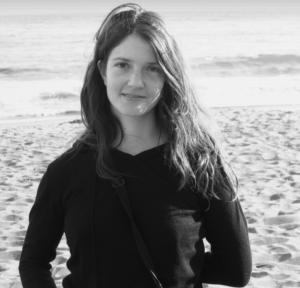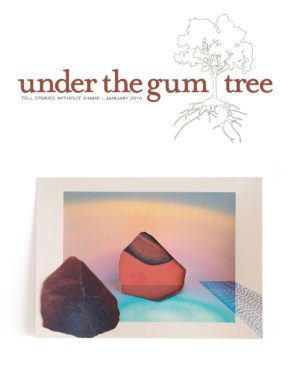Andrea Mummert Puccini

Andrea Mummert Puccini is a mother, environmental biologist, and writer. She is a native of Maryland and the Chesapeake Bay lowlands. She now lives in northern California with her husband and two sons, where she works with farmers and ranchers to improve water quality and create wildlife habitat on agricultural lands. She co-authored California Wildlife: Conservation Challenges prepared at the University of California, Davis, and her work has appeared in Pilgrimage, River Teeth online, Full Grown People, Yolo Crow, and a number of scientific journals. She can be reached at andreamummertpuccini.blogspot.com.
Today everyone seems very focused of fictional accounts of far-off worlds and morbid dystopias. What made you start writing nonfiction in the midst of this culture?
I admire and am grateful for artists and writers who are moved to create fictional worlds. For me, though, the inspiration or desire to write has always come from real experiences. There is so much interesting and beautiful richness in life that I want to attempt to portray it, to write about real experiences as a way to share them. There is a bit of a documentarian or museum curator impulse that motivates my writing. It also has to do with wanting to hold and examine certain times or places or thoughts.
In your opinion what criteria does an event have to meet to make a decent subject for a creative nonfiction piece?
I think that what makes a creative nonfiction piece engaging is the thought process and state of mind of the writer rather than the actual subject or event. Anything that causes a writer to pause and reflect and maybe take a turn in their thinking could be a good subject. My creative nonfiction teacher Rae Gouirand has said that in creative nonfiction the narrative arc happens in the writer’s ideas rather than in actual events. I think that’s a good way to think of it.
You use several headings to break this piece up. How did you decide on the format of “Imagine a Bamboo Farm”?
The format wasn’t an intentional choice. As I was writing, all of the little chunks were coming up. I tried out the headings as a way to leap from one to another without trying to create a narrative bridge. I ended up liking how they added lightheartedness, acknowledging that I could see humor in my worries over lost dreams or passing time.
How has your perspective on achieving your dreams changed from the beginning of this narrative to now?
I am more relaxed about it. Recently I flashed back to the conversation with my friend Kate, when she told me she was daydreaming about using her law degree in Cuba, and I realized that my mindset is more like Kate’s now. I can’t imagine feeling frantic to pin down my dreams and life path. As I wrote the essay, I came to the idea that even unrealized dreams can be meaningful, like the topsoil for growing your life. These days I feel pretty comfortable with not knowing which dreams will manifest in reality and which will always stay dreams.
Do you still see some dreams as mutually exclusive as you perceived Lisa’s dream to own both a home renovation store and a bamboo farm?
I think that believing in the possibility of your dreams is important to them coming into reality. So I would never tell someone that their dreams are mutually exclusive. Yet, practically speaking, I am also aware that our lives on earth are of a limited length. I know that being aware of our own temporariness can be part of what gives life poignancy and emotional depth. So, for me, I do see some dreams as things that may take many years, and would exclude other dreams that would also take decades. However, I know some people are much quicker than me.
You quoted Chogyam Trungpa, a Buddhist teacher, in your piece: “If we hold a piece of rock in our hands with clarity of perception… we not only feel the solidity of that one rock, but also the spiritual implications of it; we experience it as an absolute expression of the solidity and majesty of Earth… we could be holding Mount Everest in our hands, as far as the recognition of fundamental solidity is concerned.” Can you explain why this resonates with you?
To me, it means that there are some fundamental and universal qualities of our experiences on earth… like the solidity of rock or the ephemeral quality of mist or a blossom. I find it reassuring that these physical properties or characteristics themselves resonate with many or most people. As if there is some spiritual or emotional analogy to the physical property inside of us that thrums in response. I appreciate both that we are attuned to nature and the Earth that we evolved on, and also the reminder that there are many experiences and emotions that unite human beings at a basic level.

